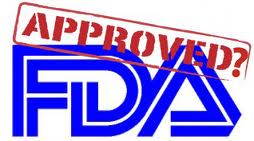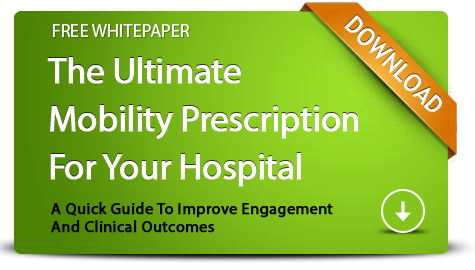 Business 2 Community
Business 2 CommunityInsights into the FDA Regulation of Mobile Medical Apps
The widespread adoption and use of mobile technologies is opening new and innovative ways to improve health and health care delivery.
The Food and Drug Administration (FDA) is an agency within the U.S. Department of Health and Human Services, responsible for protecting public health by assuring the safety, effectiveness, quality, and security of human and veterinary drugs, vaccines and other biological products, and medical devices.

Given the rapid expansion and broad applicability of mobile apps, FDA intends to apply its regulatory authorities on a subset of mHealth apps. As per FDA, many mobile apps do not come under the purview of “Medical Devices” and are not regulated. Some mobile apps may meet the definition of a medical device but because they pose a lower risk to the public, FDA intends not to enforce regulations. FDA enforces regulations only on those mobile apps that fall under the “Medical Devices” umbrella, and whose functionality could pose a risk to patient’s safety if the mobile app were to not function as intended. They are referred to as “Mobile Medical Apps”.
What are mobile medical apps?
Mobile Medical App is a category of mobile apps defined by FDA as “apps that consist of features of a regulated medical device by using attachments, sensors, or other such methods”.
Some examples of mobile apps that fall in this category include:
Mobile apps that connect to medical devices to control them or to display, store, analyze or transmit patient specific medical device data.
Mobile apps that transform a mobile platform with device functionality by using attachments, display screens, or sensors.
Mobile apps that perform patient specific analysis and provide patient specific diagnosis or treatment recommendations.
Mobile apps that use patient specific parameters to calculate dosage or create dosage plans for radiation therapy
Classification of Mobile Medical Apps:
Mobile medical apps have been classified into 3 categories:
Class I: No FDA review required and are considered least risky. For such devices, as long as they meet FDA-set standards they are ready to be marketed.
Class II: They are considered to be moderately risky. This category of devices requires the manufacturer to file pre-market notification. Pre-market notification means that the device manufacturers will be required to notify FDA of their intent to market a medical device at least 90 days in advance.
Class III: They are considered to be highly risky and will be under FDA scanner. Class III devices will need premarket approval. This is the FDA process of scientific and regulatory review to evaluate the safety and effectiveness of Class III medical devices. They may be defined as apps that support human life, play a critical role in preventing impairment of human health, or which presents a potential risk of illness or injury. These devices almost always must be approved by FDA before they are allowed in the market, and typically rely on the evidences obtained through clinical testing (i.e. on humans) to prove that they are safe and effective.
Mobile apps for which the FDA intends to exercise enforcement discretion
When FDA refrains from regulating mobile apps, it is called an exercise of “enforcement discretion.” This category includes those mobile apps that meet the regulatory definition of a “device” but pose minimal risk to patients and consumers. Examples of such mobile apps include:
Help patients/users self-manage their disease or condition without providing specific treatment suggestions
Provide patients with simple tools to organize and track their health information
Provide easy access to information related to health conditions or treatments
Enable patients or providers to interact with Personal Health Records (PHR) or Electronic Health Record (EHR) systems
Mobile apps that help patients self-manage their disease or conditions without providing specific treatment suggestions
Mobile apps that help patients diagnosed with psychiatric conditions
Mobile apps that use patient characteristics to provide patient specific screening, counseling and preventive recommendations from well-known and established authorities
Mobile apps that remind patients about pre-determined dosing schedules (medication reminders)
Mobile apps, entities, activities not under purview of FDA regulation
Examples under this category include:
Entities that distribute mobile apps such “iTunes App store” or the “Google Play store,” are not considered as medical device distributors by FDA
Mobile apps developed solely for non-clinical research, teaching or analysis and not introduced into commercial distribution
Mobile apps that are essential e-copies of medical textbooks and reference material
Mobile apps used for provider or patient medical training and education
Mobile apps used to automate operations in a healthcare setting and not for use in the diagnosis or treatment of disease
Mobile apps that function as an electronic health record (EHR) system or personal health record system
As the mobile medical app market continues to flourish, it is imperative for app developers to get familiarized with FDA regulatory processes, especially with concepts like 510(k) clearance, Medical Device Data Systems and FDA Good Manufacturing Practices. Companies in the mobile medical apps industry should follow the final guidance recently published by the FDA with respect to the regulation of their products.
The FDA regulation process prevalent currently has been met with mixed reactions. While some critics have raised the point that strict regulation of medical mobile apps could stifle innovation, others have pointed to the high degree of risks posed by spurious or faulty apps, thereby favoring the app regulation. So let’s wait and see how things take shape in future!
Take charge of your hospital’s app strategy! Download this whitepaper to learn what mobile apps can do for your hospital -
Image sources: mhealthwatch.com; References: http://www.fdalawblog.net/fda_law_blog_hyman_phelps/2013/09/mobile-medical-applications-a-thoughtful-guidance-is-finalized.html , http://www.fda.gov/MedicalDevices/ProductsandMedicalProcedures/ConnectedHealth/MobileMedicalApplications/ucm255978.htm
This article was syndicated from Business 2 Community: Insights into the FDA Regulation of Mobile Medical Apps
More Tech articles from Business 2 Community:


